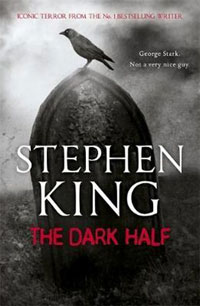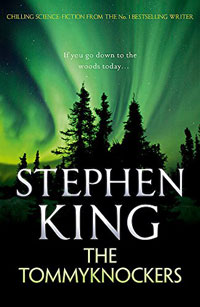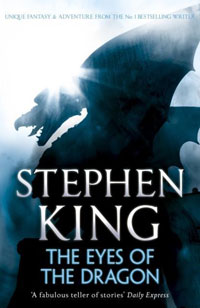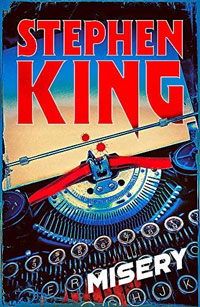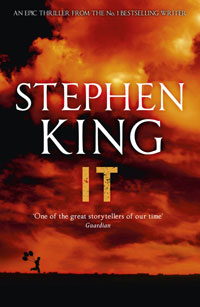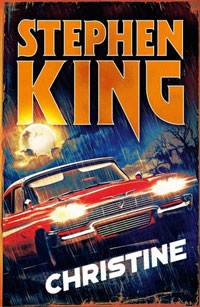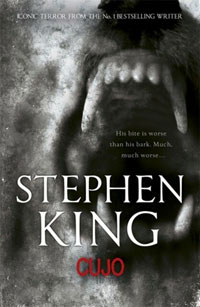7 March – 8 May

I fittingly reach the end of my current stage of Stephen King rereads with a novel that marked the end of a certain phase of Stephen King’s career—or, specifically, the end of a certain home for his tales. Needful Things, first published in 1991, was heavily marketed as being the final Castle Rock novel: the tale in which he would destroy, once and for all, the small American town in which many of his novels and stories had been set. Cinephiles may also recognise it as the name of Rob Reiner’s production company (Reiner having directed Stand By Me, which is chronologically the earliest Castle Rock tale if I’m not mistaken).
For me, the most interesting thing about Needful Things is the position it takes in Stephen King’s life and career. As such, both the start and end points for the second stage of my Revisiting King reread project were carefully selected and encompass the following five novels.
- Eyes Of The Dragon (1987)
- Misery (1987)
- The Tommyknockers (1987)
- The Dark Half (1989)
- Needful Things (1991)
Right here we have what would have almost certainly been the most tumultuous phase of Stephen King’s life had a certain van driver not been paying more attention to the road a few years later. It’s no secret anymore that King was an alcoholic, and also had the money for a decent cocaine habit. Given this framing, it’s fitting that one of his earliest Castle Rock novels, Cujo, is the one that he famously has no memory of writing. However, we’re jumping ahead of ourselves a little here. Or maybe backwards.
You see, Stephen King never set out to be a horror writer: he just happened to end up writing horror stories that sold really, really well. He broke the mould to an extent with his Dark Tower series, but his first mainstream attempt to dabble in another genre, The Eyes Of The Dragon, was (reportedly) not well accepted by fans. King promptly followed this up with Misery, a story about a writer who endures horrific abuse after trying to end a popular series of novels so he can concentrate on the less popular works that he actually wants to write. Along the way he becomes addicted to painkillers. It doesn’t exactly sound unfamiliar.
His next novel, The Tommyknockers—a tale of insidious alien invasion—seems something of an outlier … until you read it and realise that it’s all about the people of Haven becoming hooked on a form of alien influence and losing their sense of responsibility as they become more and more powerful, and wreak more and more damage on those around them. As an analogy for being drunk it’s pretty on the nose.
It was in the wake of this novel that King’s wife, Tabitha, intervened and King finally sought help for his addictions. I’ve read conflicting reports on whether The Dark Half or Needful Things is the first book he wrote while sober, but both bring a deep sense of purging with their narratives. The Dark Half (as you’ll almost certainly be aware) echoes Misery in its story of a writer trying to rid himself of a far more successful pen-name / alter-ego. Like Paul Sheldon, Thad Beaumont finds that some facets of his life are not so easily buried. Literally. Symbolically, this reflected some of King’s experiences surrounding the decision to finish off his own pseudonym, Richard Bachman—yet another aspect of King’s life and career that had recently been excised.
So finally we come to Needful Things (which acts as a slight continuation of The Dark Half in that it features one of the main characters from that novel and refers back to its events on occasion). In Needful Things, the citizens of Castle Rock are beset upon by Leland Gaunt, a devilish figure who offers each person who visits his shop the thing they desire most in the world … all in return for a simple favour. It is the nature of these favours that eventually tears the town apart, but only because of the obsessive, hypnotic—and, one would say, addictive—effect these objects of desire have on their owners.
For me Needful Things represents King tearing down one of his final crutches: a familiar, cosy setting for his stories—a place that needs little establishment or introduction. A home. We’ve already seen him attempt to move away from the financially secure trapping of the horror genre. We’ve seen him put a less successful pseudonym to rest. Off-screen, as it were, we’ve also seen him overcome his addictions.
While I have no experience in this area, I gather it’s a thing that those recovering from addiction will often excise parts of their life from before their recovery—I guess it’s the mental equivalent of starting from a clean slate. King kept his marriage, but apparently fired his agent as part of this purging process. The destruction of a small fictional American town might be small-fry in comparison to the real-life events going on, but it surely marks a final step in Stephen King’s transformation towards the next phase of his career.
The Adaptation
There is one movie adaptation of Needful Things that was released in 1993. Like many King adaptations of this era it comes with the non-essential feel of a TV movie, as if the latest King adaptation was just something that had to be done and gotten out of the way. That’s really just my way of saying that I’ve never felt any urge to watch it.
That being said, the casting has some elements of perfection. Max Von Sydow as the sinister shop owner Leland Gaunt probably couldn’t be topped, while I can absolutely see Ed Harris as Sheriff Pangborn. Without going too far into spoiler or plot territory, Amanda Plummer and J.T.Walsh are both well, if a little predictably, cast according to their screen personas. The other notable cast member is Bonnie Bedelia, who I can well imagine delivering the strength and independence, but also the vulnerability, that her character would require.
But I’m still not gonna watch it.
The Reading
I have to admit I found this a pretty tedious read. I’m fairly convinced there was potential for a great novel here—the setup of Gaunt coming to town, giving the citizens what they most desire, and then using his hold over them to pit them against one another and destroy the town could provide the basis for a remarkable novel. Unfortunately, King’s structure, which mostly devolves into scene after scene of this person plotting in increasingly paranoid fashion against that person quickly becomes repetitive. As a quick read this could still work, but this is one of the those novels where King gets a bit carried away and consequently the build up to the climax proves excruciatingly slow.
Up Next: I’ll be taking a break from King for a while (most likely to read Jeff Vandermeer’s Area X trilogy) but I’ll be back eventually with Gerald’s Game which, at the very least, comes with an excellent film adaptation.

